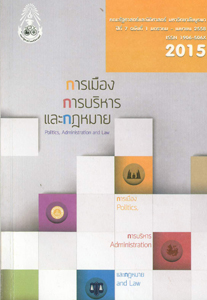An Analysis on Performance Competency of Civil Servants towards Excellence: A Case Study of Communes in Daun Penh District, Phnom Penh, Cambodia
Keywords:
performance competency, civil servants, Malcolm Baldrige model, decentralization, CambodiaAbstract
The objectives of this study are to investigate the civil servants’ performance at commune level and to study the causes and effects on the relationships of the performance measurement criteria of Baldrige model. Mix-method approach has been constructed based on seven criteria of the Model and open-ended interviews. The samples of 100 civil servants and 382 residents in 11 communes of Daun Penh District have been analyzed by descriptive and inferential statistics. The qualitative data based on interviews with district representative and commune leaders of Daun Penh District, as well as representatives from two NGOs have been analyzed by content analysis technique to explore further reasons and opportunities for decentralization development based on the contributions of civil society towards performance competency of civil servants in the communes.
The finding reveals negative relationship between the civil servants and the citizens’ perspectives of the performance competency. The civil servants rated their performance as highly efficient, while the citizens viewed it as substandard. Furthermore, the research found the causes and effects on the relationships among the performance measurement criteria of Baldrige model as positive. However, there is a positive relationship between the NGOs and the civil servants, specifically, based on the interviews with Mith Samlanh and JICA, this research concludes that the performance competency of civil servants has significant changed and gradually strengthened, apart from the challenges of limited power and budget delegation of the communes. The noteworthy contributions of both NGOs were found to be focused towards capacity building, health care and infrastructure.
Finally, this research suggests potential guidelines in order to resolve local issues such as managerial autonomy of local governments, work evaluation system, information sharing capacity, citizen participation and other alternatives.






